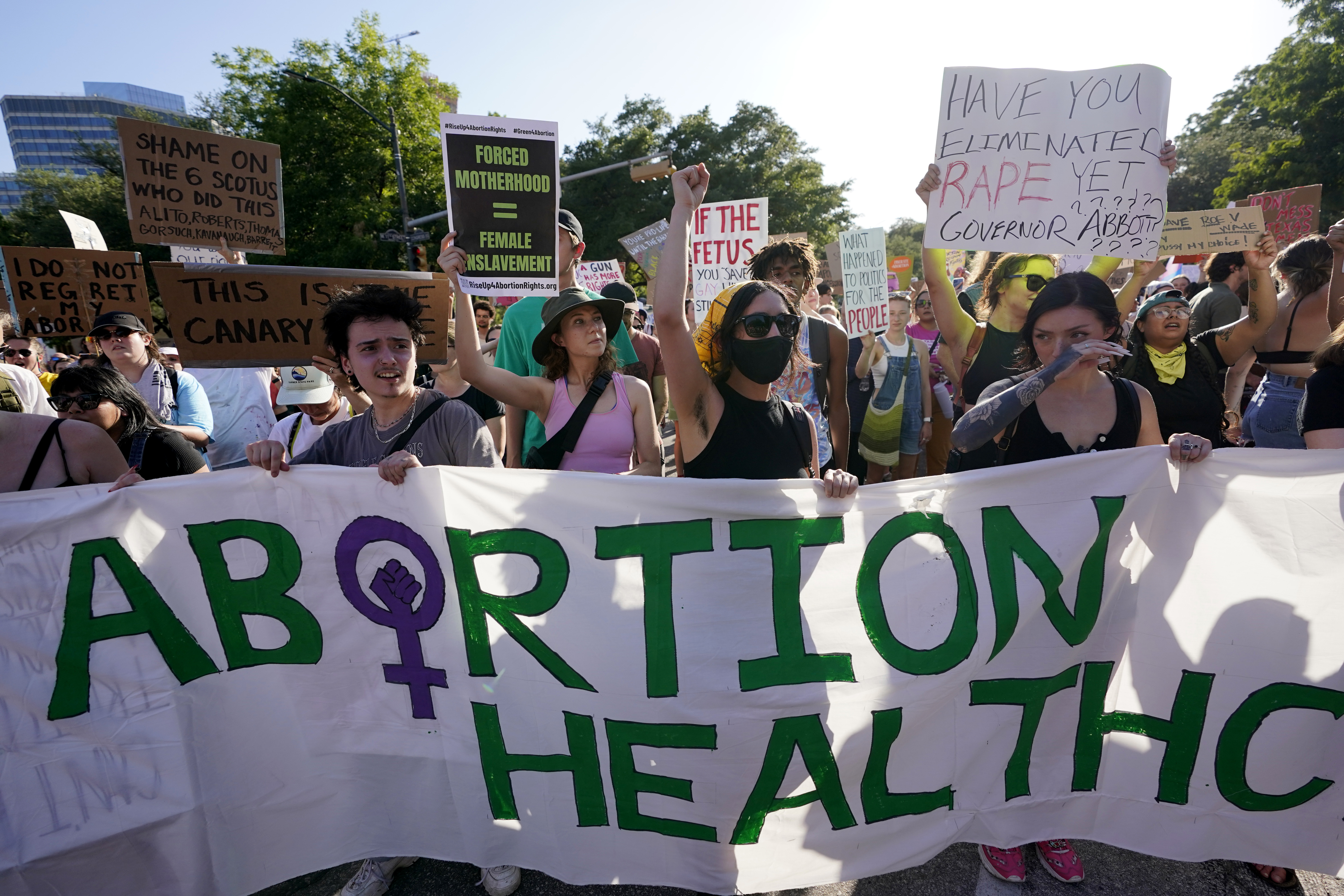The Florida Supreme Court is set to hear arguments Friday in a case that could play a major role in the future of abortion rights in the state.
The 6-week abortion ban, which was passed this year, is contingent on whether the 15-week ban will be upheld in court. We break down Florida's current abortion laws and what's being argued before the Supreme Court.
Is abortion legal in Florida?
Yes. However, abortion is banned after 15 weeks and six days of pregnancy.
The Hurricane season is on. Our meteorologists are ready. Sign up for the NBC 6 Weather newsletter to get the latest forecast in your inbox.
If you're beyond 15 weeks and six days pregnant, there are exceptions that allow you to get an abortion, including:
- To save the pregnant person's life
- To prevent serious risk to the pregnant person's physical health
- If the fetus is not expected to survive the pregnancy
Those under the age of 18 must get permission to get an abortion from a parent or legal guardian, or a judge's order.
A 24-hour waiting period is also required, meaning a pregnant person must visit their abortion provider for in-person counseling and then wait 24 hours before returning to get an abortion. This can be waived if their health is at risk.
The 15-week limit is outlined under HB 5, or the Reducing Fetal and Infant Mortality bill. The bill also redefines the term “gestation” to measure gestational age as the time period starting on the first day of the pregnant woman’s last menstrual period.
The law went into effect on July 1, 2022.
But in this past legislative session, Florida Gov. Ron DeSantis signed a 6-week abortion ban into law.
What does Florida's 6-week abortion ban entail?
This abortion ban, outlined under SB 300 (the Pregnancy and Parenting Support bill), would ban all abortions after six weeks.
There are limited exceptions, including:
- If the pregnancy is the result of rape, incest or human trafficking. If proof of rape or incest is provided, the pregnant person may access abortion up to 15 weeks into the pregnancy. In those cases, pregnant people would have to provide documentation such as a medical record, restraining order or a police report.
- If a fatal fetal abnormality is detected, abortion is accessible until the third trimester of pregnancy.
Even with its exceptions, the bill would become the strictest abortion ban the state has had in recent memory. Critics of the bill say many people don't even realize they're pregnant before six weeks and would have little time to receive care under the state's 24-hour, two-trip requirement.
However, this new bill has been on hold.
Why isn't the 6-week abortion ban in effect yet?
The 6-week ban will take effect only if the state’s current 15-week ban is upheld in an ongoing legal challenge that is before the state Supreme Court. Justices will hold a hearing on the 15-week ban Friday, Sept. 8.
What will be argued at this hearing?
In the constitutional challenge to the 15-week limit, which was filed by seven abortion clinics and a physician, a key issue is whether the limit violates a privacy clause in the Florida Constitution that has helped protect abortion rights in the state for more than three decades.
Florida voters in 1980 approved a constitutional amendment that established state privacy rights. A 1989 Florida Supreme Court ruling set an initial precedent about the privacy clause protecting abortion rights, and subsequent decisions have followed that precedent.
The decision, known as “In re: T.W.,” has loomed over abortion litigation in Florida and has been a target for abortion opponents.
As part of the case in Friday's hearing, Attorney General Ashley Moody’s office wants the Supreme Court to back away from the 1989 ruling and leave abortion decisions to the Legislature.
However, attorneys for the abortion clinics and a doctor challenging the 15-week limit argued that the Supreme Court should maintain the longstanding interpretation of the privacy clause.
What happens after?
If the Supreme Court finds in the 15-week case that the privacy clause does not protect abortion rights, it would effectively allow the state to move forward with the six-week limit. The 6-week ban would go into effect 30 days after the court rules.
Meanwhile, a coalition of groups in May began a drive to try to pass a constitutional amendment in 2024 to ensure abortion rights. The proposal, spearheaded by the political committee Floridians Protecting Freedom, would seek to ensure abortion rights up to fetal viability, which has generally been interpreted as about 24 weeks of pregnancy.
As of the beginning of September, the petition appeared to have enough signatures to trigger a Supreme Court review. If justices sign off on the wording, Floridians Protecting Freedom would need to submit at least 891,523 valid petition signatures statewide to get on the November 2024 ballot.



